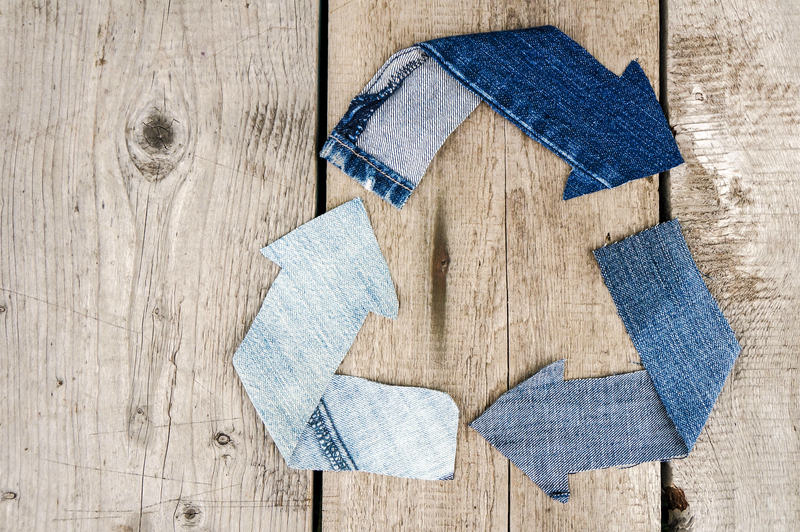Household Waste Reduction Made Easy and Fun
In today's world, reducing household waste has never been more important. With global environmental challenges on the rise, making simple and enjoyable changes at home can have a huge impact on the planet. Whether you're just starting your waste reduction journey or looking for fresh ways to minimize your household waste, this comprehensive guide will show you how to make eco-friendly living both easy and fun.
Why is Household Waste Reduction Important?
The average household generates tons of waste every year, much of which ends up in landfills or pollutes the environment. Reducing waste not only helps protect our planet, but it also saves money and resources, enhances community health, and can bring families closer together through shared sustainable habits.
- Environmental protection: Less waste means lower greenhouse gas emissions and a cleaner environment.
- Resource conservation: Reducing, reusing, and recycling conserves natural resources and reduces the need for raw materials.
- Financial savings: Efficient waste practices often lead to buying less and saving more.
- Health benefits: Preventing waste reduces pollution and helps keep our communities safer and healthier.
By embracing easy waste reduction techniques, you become part of a global movement striving for a more sustainable future.

Getting Started: Steps to Reduce Waste at Home
Ready to take charge of your household waste reduction? Here's how to get started:
1. Conduct a Waste Audit
Begin by understanding what types of waste your household creates on a weekly basis.
- Examine your trash bins to identify the most common waste items.
- Sort your waste: categorize items as recyclable, compostable, reusable, or landfill-bound.
- Track your waste for one week to find your biggest opportunities for reducing waste.
2. Embrace the 5 R's of Waste Reduction
Build your strategy around the renowned 5 R's:
- Refuse unnecessary items (like single-use plastics).
- Reduce consumption by buying what you truly need.
- Reuse and repurpose as much as possible.
- Recycle following local municipal guidelines.
- Rot organic waste through home composting.
Simple and Fun Household Waste Reduction Tips
These practical and creative tips will show you that reducing home waste isn't just easy--it's enjoyable!
Shop Smarter and Waste Less
- Bring your own bags and containers when shopping.
- Choose loose produce instead of pre-packaged items.
- Shop in bulk for dry goods using reusable containers or bags.
- Plan meals and write smart shopping lists to avoid food waste.
For a fun twist, challenge family members to find the least-packaged product during your next grocery trip!
Reduce Food Waste at Home
- Store food properly to prolong freshness (learn which foods belong on the counter vs. the fridge).
- Repurpose leftovers and vegetable scraps into soups, stocks, or stir-fries.
- Create a weekly "clean out the fridge" meal to ensure nothing goes to waste.
- Compost kitchen scraps--kids love watching food turn into soil!
Tip: Get kids to help with cooking using leftovers. It fosters creativity and reduces waste!
Creative Reuse Ideas for Everyday Items
- Turn glass jars into storage containers, vases, or lanterns.
- Repurpose old T-shirts as cleaning rags or tote bags.
- Reinvent cardboard boxes as organizers or art projects.
- Create eco-friendly gifts by upcycling jars or tins.
Host a "make it new again" crafting night to spark eco-friendly creativity with family or friends!
Smart Recycling: Maximize Your Efforts
- Understand local recycling rules and sort materials accordingly.
- Rinse containers before recycling to avoid contamination.
- Bundle paper and flatten cardboard to save space.
- Bring hard-to-recycle items (electronics, batteries) to dedicated collection points.
Composting Made Easy for Beginners
Composting is one of the best ways to reduce organic waste at home. It minimizes landfill contributions, enriches your garden, and is surprisingly simple.
What Can You Compost?
- Fruit and vegetable scraps
- Coffee grounds and tea leaves
- Egg shells
- Yard trimmings and grass clippings
- Paper towels (unbleached) and napkins
Note: Avoid meat, dairy, and fats in home compost to prevent pests and odors.
Setting Up a Compost System
Choose a system that works for you:
- Backyard compost bin - Ideal for gardens and larger spaces.
- Worm composting (vermicomposting) - Great for indoors or apartments.
- Bokashi bins - Compact, fast, and odor-reducing.
Involve kids by letting them add scraps and observe the composting process, turning waste reduction into an engaging science activity!
Engage the Whole Family in Waste Reduction
Making waste reduction at home a family affair sets positive habits for life and makes sustainability a shared value.
Fun Activities and Challenges
- Hold a weekly "waste audit" game--see who can create the least trash!
- Designate Family Eco-Leaders to spot new waste reduction opportunities.
- Start a zero-waste jar and reward the family for keeping it empty.
Tip: Make a colorful chart to track your progress and celebrate improvements each month!
Teach Kids About Reducing Waste
- Read books and watch videos about recycling and sustainability.
- Do crafts using recycled materials (bottle cap art, bird feeders from cartons, etc.).
- Take field trips to recycling centers or local landfills to see where waste goes.
Reduce Household Waste in Each Room
Kitchen
- Switch to reusable food wraps and containers.
- Install a water filter to avoid single-use plastic bottles.
- Buy in bulk to cut down on packaging.
- Keep a scrap container handy for compostable waste.
Bathroom
- Opt for bar soap instead of liquid soap in plastic bottles.
- Use washable cloths instead of disposable wipes.
- Choose refillable shampoo and conditioner.
- Recycle old toothbrushes via special programs.
Living Room and Office
- Switch to digital subscriptions for newspapers and magazines.
- Give unwanted furniture or decor items a new home through donation or resale.
- Recycle or donate old electronics responsibly.
- Minimize printing and reuse office paper for notes.
Laundry Room
- Use concentrated detergent in recyclable packaging.
- Wash with full loads to save water and energy.
- Air-dry clothes to minimize dryer use and prolong garment life.
- Repurpose worn-out towels as cleaning rags.
Hosting Zero Waste Events and Celebrations
Social gatherings often generate a lot of waste. Make your next event fun and eco-friendly with these zero-waste celebration ideas:
- Use reusable plates, cups, and utensils instead of disposable ones.
- Encourage potluck meals to decrease food waste.
- Decorate with natural or reusable materials, like fabric banners and potted plants.
- Send digital invitations rather than paper cards.
Get creative with eco-themed games and encourage guests to bring eco-friendly gifts wrapped in reusable fabric or baskets.
Making Household Waste Reduction a Long-Term Habit
Consistency is key to successful waste reduction at home. Start small and build new habits gradually, celebrating each milestone.
- Set achievable goals: For example, aim to cut your trash output by half over three months.
- Educate yourself: Stay updated on new waste reduction strategies and share tips with others.
- Join local environmental groups: Sharing experiences amplifies your impact and keeps you inspired.
- Reflect and adjust: Track your progress each month and identify new ways to become even more sustainable.

The Positive Impact of Reducing Household Waste
- Improved quality of life - Living clutter-free and sustainably feels rewarding.
- More savings - Buying less and reusing more can free up significant funds for your family's goals.
- Community leadership - Your efforts inspire neighbors and set positive examples for others.
- Planet protection - Each piece of waste prevented keeps our air, land, and water cleaner and healthier.
Remember, every small change makes a difference. Collectively, these steps create real, positive change for our environment and future generations.
Conclusion: Start Your Joyful Waste Reduction Journey Today
Reducing household waste doesn't have to be complicated or dull. With a spirit of fun and creativity, you can turn simple daily actions into powerful environmental wins. Whether you swap out disposable products for reusables, compost your organic scraps, or involve the whole family in waste-busting challenges, your home can become a shining example of sustainable living.
Embrace these easy and fun household waste reduction ideas, and enjoy a happier, healthier, and more sustainable lifestyle--one small step at a time!